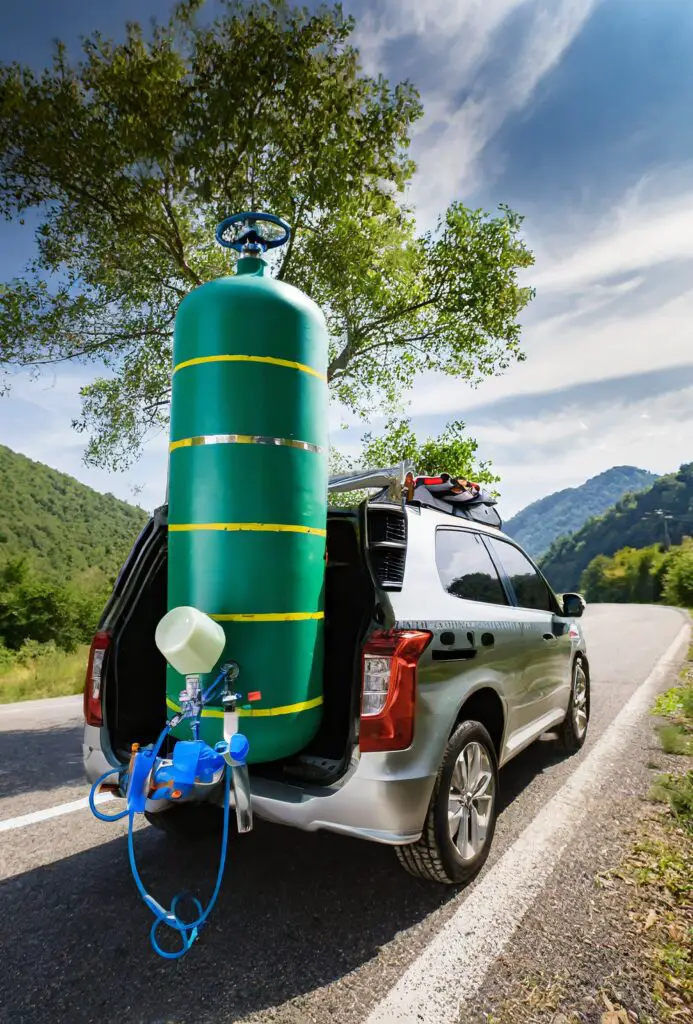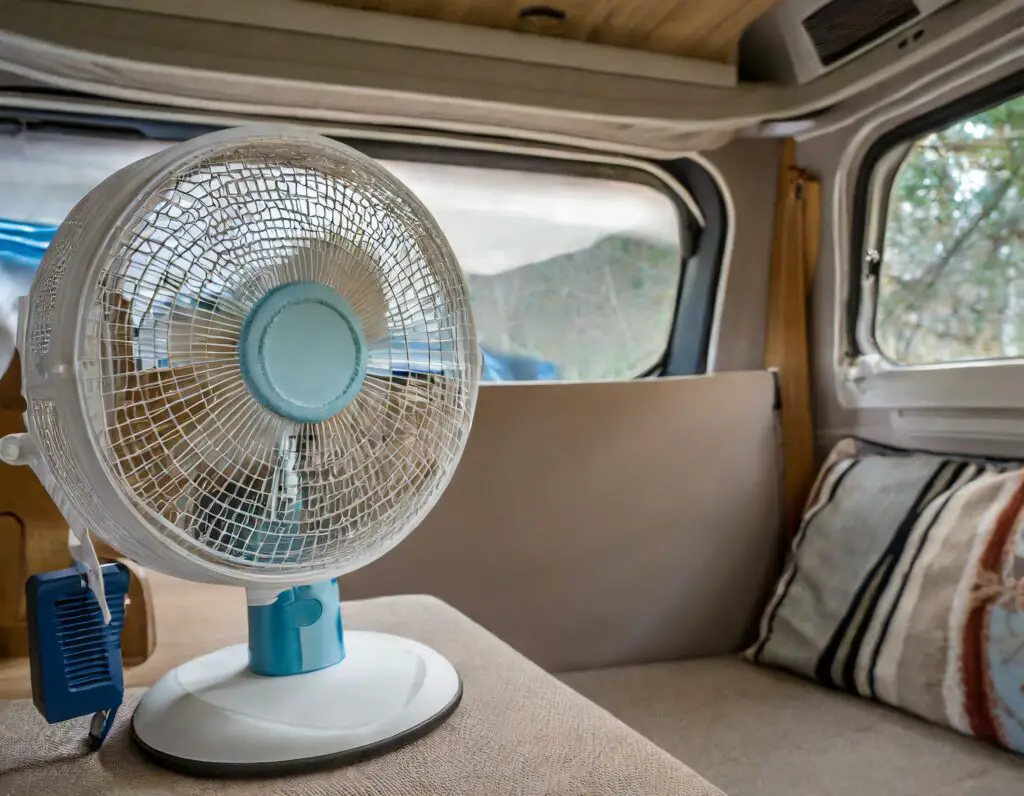Vehicles are fortunately not air tight which means you will not Run out of Oxygen Sleeping in a Car over night. However, depending on the amount of people and the activities performed in your vehicle with the engine off and windows up the air quality can dramatically decrease.
This article aims to address frequently asked questions regarding the air inside your vehicle and dispel misconceptions about running out of oxygen while sleeping in a car overnight. We will also provide some helpful tips for improving air quality and flow in your car to ensure the best & safest sleep possible.

How long can you breathe in a car?
You can actually breathe indefinitely in your vehicle with the windows closed and no mechanical ventilation. Surprising, right? Well, vehicles aren’t completely airtight, so you won’t suffocate in there! Studies show that the air changes per hour range from 1.0 to 3.0, giving you a constant supply of fresh air. So sit back, relax, and enjoy your mobile breathing oasis!
How much Air is in a Car Interior?
Did you know that the air in a typical compact car can hold a whopping 747 to 821 gallons (2,830–3,110l)? Mid-size vehicles take it up a notch with 822 to 897 gallons (3,115–3,395l), and large vehicles go all out with upwards of 898 gallons (3,400l). That’s a whole lot of air for your ride! 💨 (source: Fueleconomy.gov).


How Much Air Do you Need an Hour?
The average person breathes approximately 83 gallons (314 litres) of air an hour or just over ‘2,000 gallons of air a day’ (Source: lung.org). Strenuous physical activity can increase how much air you need and activities such as sleeping can reduce this amount.
The above estimates and reasoning explain why you will not Run out of Oxygen Sleeping in a Car over night.
How to Improve Air Quality in your Car
The replacement of air is measured by Air change per hour (ACH) which is the rate at which all of the air is replaced within an area. This replacing of air allows for pollutants, build ups of toxic compounds and odors to be replaced with fresher, cleaner air.


According to the United States Environmental Protection Agency “Ventilation and Acceptable Indoor Air Quality is that of 0.35 air changes per hour“. They also mention “dwellings with tight enclosures may require supplemental ventilation supply for fuel-burning appliances, including fireplaces and mechanically exhausted appliances.“
Some of the best ways to improve the air quality and ACH in your vehicle include:
- Cracking open a window
- Portable fans
- Car Air Purifiers
- Keeping your interior tidy
- Limit the use of Air fresheners
Crack open a window
Opening a window is one of the quickest and most efficient ways to increase the air quality inside of your vehicle. An open window allows for a greater ACH within your car which speeds up the removal of contaminants, especially on a windy day. Just in case, you cannot open the car window manually and you feel suffocated, you can consider resorting to breaking open the car glass with an emergency car glass breaker.
Unfortunately some weather conditions such as heavy rain or snow can make this a non viable option for some.
Portable fan
Portable electric fans are a great way to increase air circulation and the ACH in a vehicle which can overall assist with improving air quality. There are plenty of battery powered or 12v plug in alternatives compact portable fans for your vehicle readily available online or from camping retailers.
Note: Fans work particularly well when placed near an open window to promote the flow of fresh air from the vehicles exterior.


Car Air Purifier
Similar to that of purifiers used for inside houses, car air purifiers are a great way to increase the quality of the air inside of your vehicle. These purifiers are greatly beneficial if you are staying in a built up or area with high amount of traffic. Car air purifiers work by absorbing contaminants from the air or by producing negative ions that can also assist with reduce odors from your vehicle.
Keep your interior tidy
Keeping the interior of your vehicle clean and free from rubbish and or dirty dishes can help with keeping a good air quality within your vehicle. A mess free vehicle is less likely to produce odors that contribute to a poor air quality.
Limit use of Air Fresheners
Although air fresheners can be handy to help eliminate pesky odors, contrast to their name air fresheners contain volatile organic compounds that can reduce air quality. If you do decide to use an air freshener make sure to look at the materials used or consider an organic or natural air freshener.
FAQ’s
Do you need to crack window when sleeping in car?
You do not necessarily have to have a window cracked when sleeping in your car, but it is ideal to do so if you do not have another means of adequate ventilation. Having a window cracked will assist with better air quality but there are other ways to improve air quality without opening your window.
Is it ok to Sleep in your Car with AC on?
It is not recommended to sleep with your car AC on, as you could be at risk of carbon monoxide poisoning from an exhaust leak. Having your vehicle idle all night to run the AC is also cost ineffective and unnecessary determinantal to the environment. If the weather is extremely hot or cold it is best to run your vehicles AC periodically to assist with the temperature.
Electric vehicles eliminate the risks associated with poisoning from the exhaust fumes of ICE vehicles and excessive use of gas is not relevant. A portable air conditioner is a great alternative and are by design perfect for small spaces like cars or tents.
How fast would you run out of oxygen in a car?
In the average compact car holding 747 gallons of air you would run out of air in 9 hours, assuming a car is air tight. Fortunately vehicles are not air tight and replace air at a rate of 1 to 3 times per hour.
Can you get carbon monoxide poisoning from sitting in a car too long?
Yes, carbon monoxide poisoning can be a serious risk when sitting in your running car. Within in a low air replacement space such as confined parking space can make a running vehicle potentially dangerous.
If you are looking to sleep in your car having the vehicle turned off is best practice. If you do decide to have your vehicle running make sure you are in an open area with a window down to increase air replacement and mitigate risk.
With Carbon monoxide being a clear odorless gas, having a carbon monoxide detector in your car is the best bet for early detection.
Are car interiors airtight?
Car interiors are not designed to be air tight, vehicles are fitted with ventilation systems for AC that can draw outside air along small spaces between doors that allows air to be replaced.
Do you need ventilation when sleeping in a car?
No, you do not technically need ventilation when sleeping in a car, However it is highly recommended to have some sort of ventilation to improve air quality.
Author
-


Augustus, an intrepid traveler and RV enthusiast, has journeyed across North America, Europe, and Australia, turning his passion for adventure into a life's mission. His love for exploring began in his childhood, with local hikes and camping trips igniting a deep connection with nature. This connection now shines through in his popular travel blog, where he shares not just tips but personal stories, captivating a community of fellow wanderers. His travels are further enriched by his partnership with Zaara, his wife and travel companion, together exploring remote landscapes and diverse cultures. Augustus is also a skilled photographer, capturing the beauty of nature and the essence of his nomadic lifestyle in each shot. His life story is a mosaic of breathtaking experiences, a testament to the beauty of following one’s passions and embracing the unknown, inspiring others to explore the world with the same fervor.
View all posts

